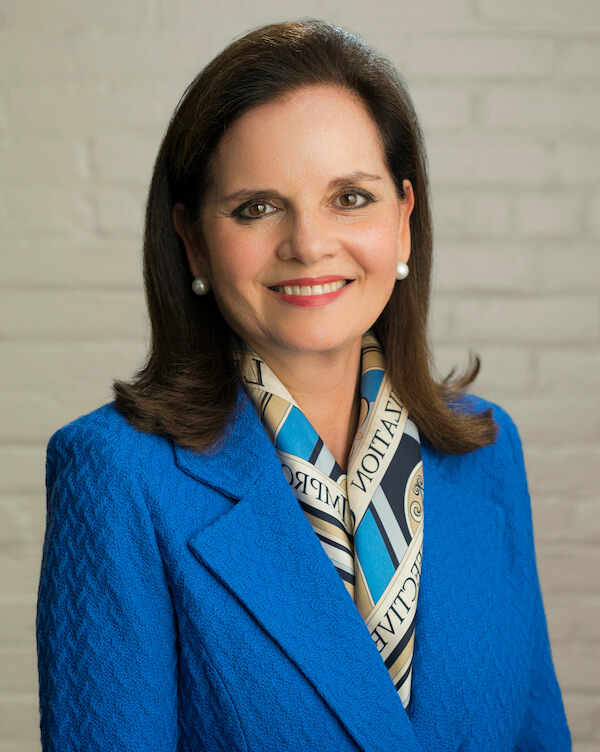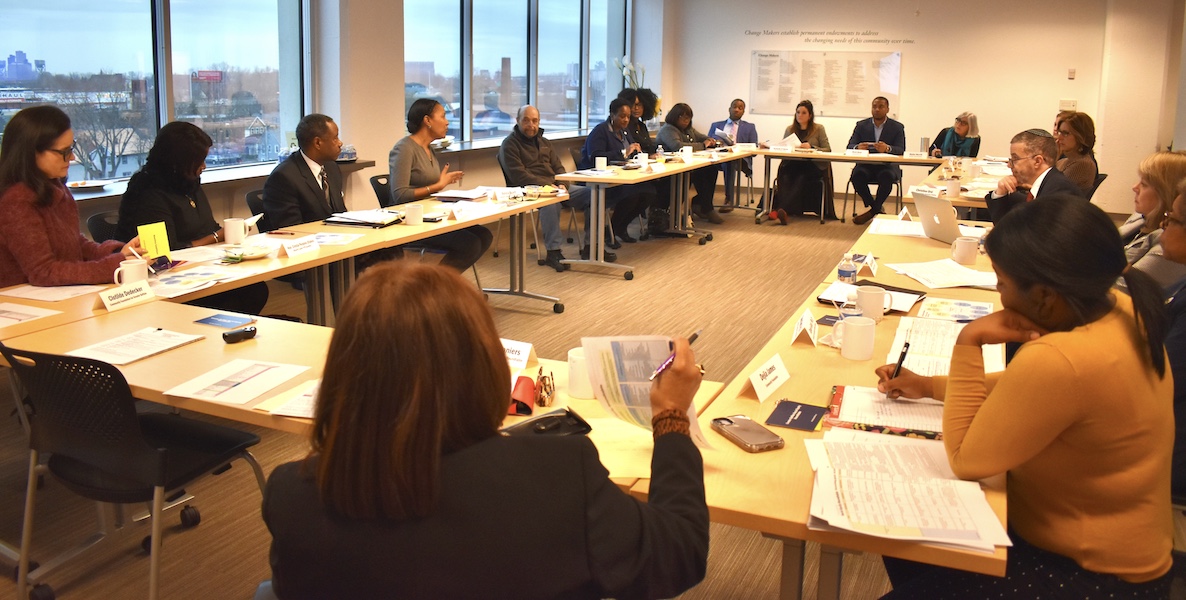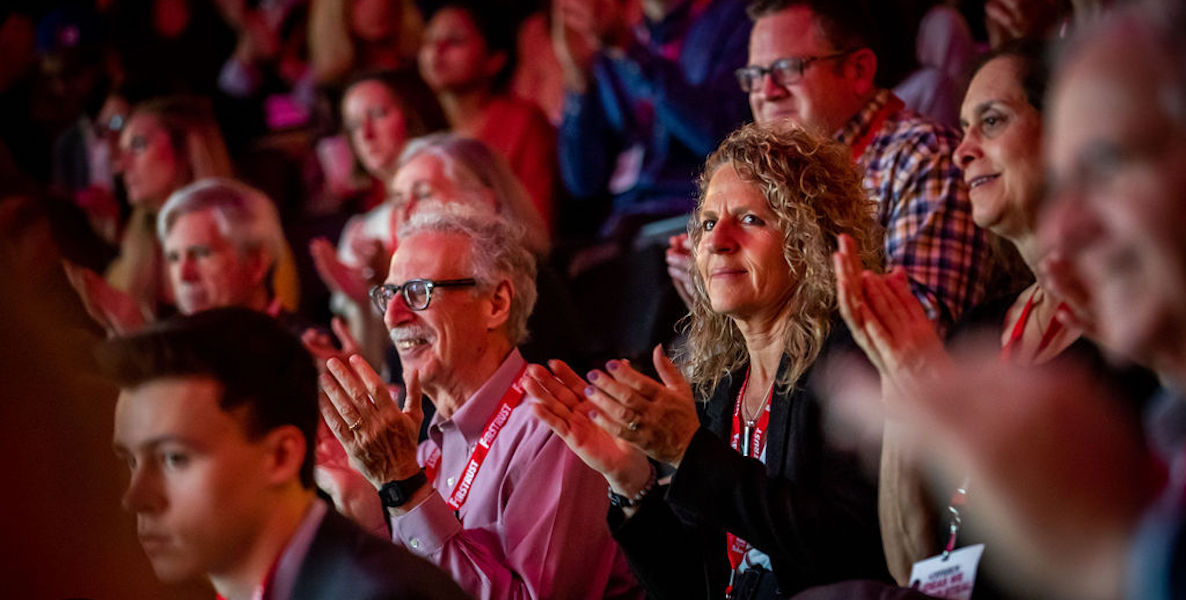![]() The nation had a popular Black president when, somehow, news of a moving video about race relations in Buffalo, New York, made its way onto my radar screen.
The nation had a popular Black president when, somehow, news of a moving video about race relations in Buffalo, New York, made its way onto my radar screen.
A diverse group of civic leaders—clergy, elected officials, nonprofit leaders, business men and women—had started meeting and really talking. They shared their personal race stories with one another, and they pledged to work together to create a new Buffalo racial narrative around opportunity and growth.
This, I remember thinking, would be well worth tracking.
If the above video tugged at emotional heartstrings, the Greater Buffalo Racial Equity Roundtable’s next act added serious steak to the sizzle.
The group, comprised of 37 diverse civic leaders, released a “Dividend Report”—both a deep dive into the data behind Buffalo’s entrenched race and opportunity divide, and a roadmap for disrupting systems that stand in the way of equity.
The video and the data report make for an interesting combination, a heart and head—or air and ground—approach. Turns out, that was entirely purposeful, driven by the vision of the charismatic leader of the Community Foundation for Greater Buffalo, Clotilde Perez-Bode Dedecker, who will share the story of the Roundtable at this year’s Ideas We Should Steal Festival in December, in a conversation with Pedro Ramos, President and CEO of the Philadelphia Foundation.

Here’s the background: When Perez-Bode Dedecker, took over the Foundation in the early aughts, a listening tour revealed Buffalo’s long-standing divides, not unlike those that afflict Philadelphia. Deep poverty, joblessness, social immobility.
She got to work: Say Yes Buffalo, a bold scholarship and comprehensive supports program, has raised the graduation rate 21 percent over eight years. But it became clear that the need extended well beyond education. Economic downturns had devastated all of Buffalo through the years, but structural racism had amplified its effects on communities of color. In 2008, the U.N. rated the city as one of the worst for economic inequality and racial bias—worldwide.
“We began to see that there was no path to the future unless we work toward racial equity, which means fair and equitable opportunity, so that we can get to equal outcomes,” says Perez-Bode Dedecker.
But how? She brought in an array of speakers, experts and academics to share their ideas with her Board and a growing list of civic leaders.
![]() They heard from the likes of Angela Glover Blackwell, the founder of Policy Link; john a. powell, director of Cal-Berkeley’s Othering & Belonging Institute, and Dr. Gail Christopher, who had overseen The Truth, Racial Healing & Transformation program as vice president of the Kellogg Foundation in 2014.
They heard from the likes of Angela Glover Blackwell, the founder of Policy Link; john a. powell, director of Cal-Berkeley’s Othering & Belonging Institute, and Dr. Gail Christopher, who had overseen The Truth, Racial Healing & Transformation program as vice president of the Kellogg Foundation in 2014.
A consensus formed. The answer wasn’t handouts or safety net programs, as important as those policies might be. The answer lay in convincing all of Buffalo that fueling equity and inclusion was good for all in the city, across the board.
Particularly impactful was powell’s theory of “targeted universalism,” the idea that, when you target the special needs of a particular group, you actually benefit more folks than you ever imagined. “Angela Glover Blackwell writes about the curb cuts that were part of the Americans with Disabilities Act,” Perez Bode-Dedecker says. “How many times have we benefited from the curb cut, even though it wasn’t meant to benefit us?”
“We began to see that there was no path to the future unless we work toward racial equity, which means fair and equitable opportunity, so that we can get to equal outcomes,” says Perez-Bode Dedecker.
Likewise, Perez Bode-Dedecker says, investing in opportunity helps everyone. “Because in an expanded inclusive economy, you, the car dealer, sell more cars,” she says. “You, the realtor, sell more homes. You, the journalist and publisher, sell more papers. You, the elected official, have a larger tax base. Everybody wins. That is the messaging platform for our work.”
![]() The Roundtable, in other words, goes well beyond reciting the litany of by-now familiar and accurate racial grievances; its Dividend Report actually quantifies the economic impact on the city of closing the opportunity gap.
The Roundtable, in other words, goes well beyond reciting the litany of by-now familiar and accurate racial grievances; its Dividend Report actually quantifies the economic impact on the city of closing the opportunity gap.
Systems change is long, painstaking work. Working with a national consulting team, the Roundtable mapped the city’s systems for bias and inequality, and then put together an action plan in partnership with more than 250 stakeholders. Only then did they begin implementing interventions.
Case in point: The mapping exercise for the Roundtable’s reentry effort three years ago revealed the city’s 82-percent recidivism rate.
As is so often the case, returning citizens were often let out of prison, given a bus token, and left to fend for themselves. Well, this fall, thanks to the Roundtable, doors opened on the first Reentry Service Link Stop.
“It’s a one-stop shop for reentering citizens where 20 organizations are co-located,” says Perez Bode-Dedecker. “Now, an individual released from the prison can literally walk around the corner and into this beautiful and inviting space, with pretty pictures and murals, brand new furniture, hot coffee, and 20 providers who are there to help them plan for their immediate and long term needs to succeed in life and make the most of a second chance.”
That’s just one example, but others are on the way.
The CEOs of the city’s 12 major employers, for example, have formed a task force making investment in racial equity a priority—and they’ve released bold plans around a shared commitment to hiring local minority vendors.
It’s not sexy work, Perez Bode-Dedecker says. “It’s a lot of meetings, a lot of data, a lot of analysis,” she says. “But it’s how systems change really happens.”




